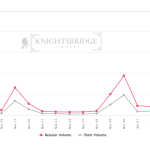The Federal Reserve, often lauded as a bastion of economic independence, faces a critical juncture. Amidst mounting pressure from the Democratic Party and a slowing economy, the Fed is contemplating a risky policy shift: a premature rate cut in early 2024. While ostensibly intended to stimulate growth, such a move could backfire spectacularly, jeopardizing both the health of the economy and the integrity of our democratic institutions.
The Fed’s Conflicted Mandate:
The Fed faces a dual mandate: achieving maximum employment and price stability. However, these goals can sometimes be at odds. Lowering interest rates can boost economic activity and create jobs, but it can also exacerbate inflationary pressures. The current economic environment presents a perfect illustration of this dilemma.
While inflation has shown signs of moderating, it remains significantly above the Fed’s target of 2%. At the same time, economic growth is slowing, raising concerns about a potential recession. This tricky situation puts immense pressure on the Fed to strike a delicate balance between supporting the economy and fighting inflation.
Politicization of Monetary Policy:
Unfortunately, the Fed’s decision-making process is increasingly becoming politicized. The Biden administration and many Democrats have openly advocated for lower interest rates, arguing that they are necessary to boost the economy and improve the party’s chances of winning the 2024 elections. This blatant political interference undermines the Fed’s independence and casts doubt on its commitment to price stability.
A Dangerous Precedent:
Should the Fed succumb to political pressure and lower rates prematurely, the consequences could be severe. Lower interest rates could reignite inflationary pressures, leading to higher prices for goods and services. This would disproportionately hurt low-income Americans and erode public trust in the Fed.
Furthermore, a rate cut now could create a dangerous precedent. It would signal that the Fed is willing to prioritize political expediency over sound economic principles. This could lead to future administrations pressuring the Fed to manipulate monetary policy for their own short-term gains, ultimately undermining the economic stability of the country.
The Way Forward:
The Fed must resist the urge to capitulate to political pressure. Instead, it must prioritize its core mandate: maintaining price stability and fostering long-term economic growth. This requires a data-driven approach, focusing on the economic indicators and not the whims of politicians.
The Fed should also strive to enhance its transparency and communication efforts. This will help build public trust and ensure that its decisions are seen as legitimate and objective.
Ultimately, the Fed’s integrity and the future of the American economy are at stake. The Fed must choose wisely. It must not allow itself to become a political tool, but rather remain the independent and objective institution it is meant to be.
Shayne Heffernan









